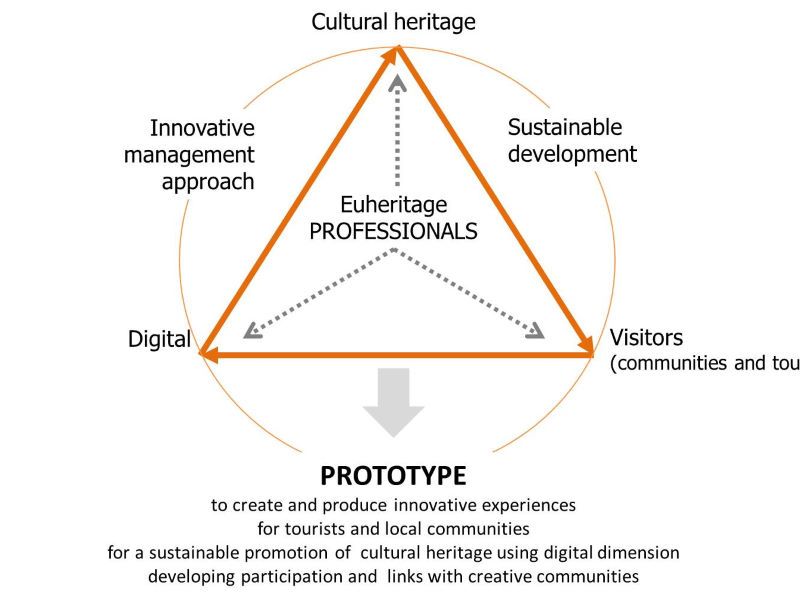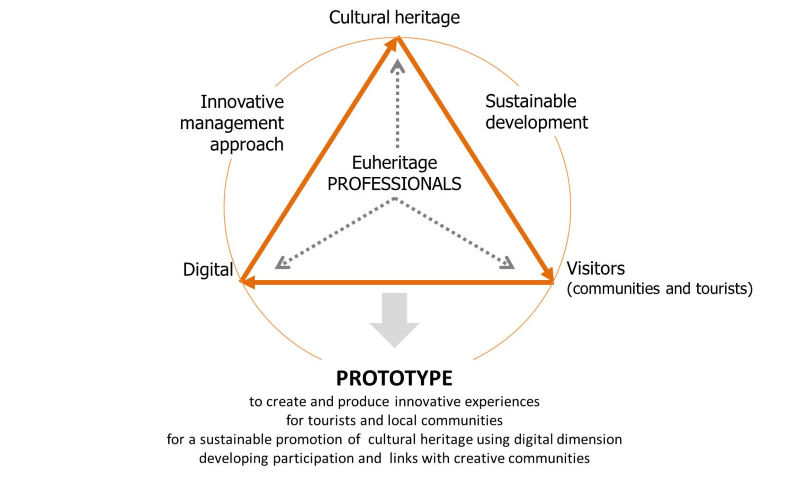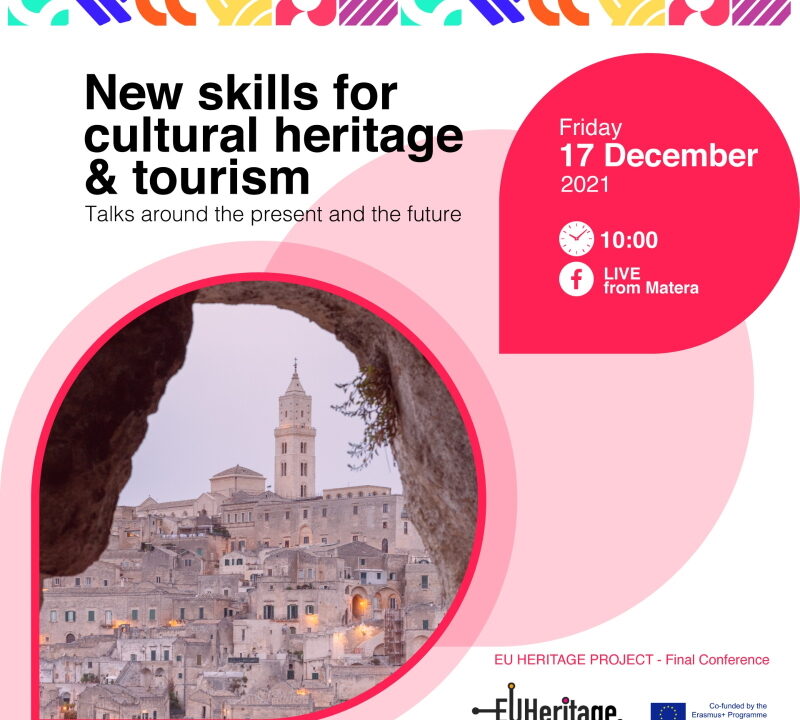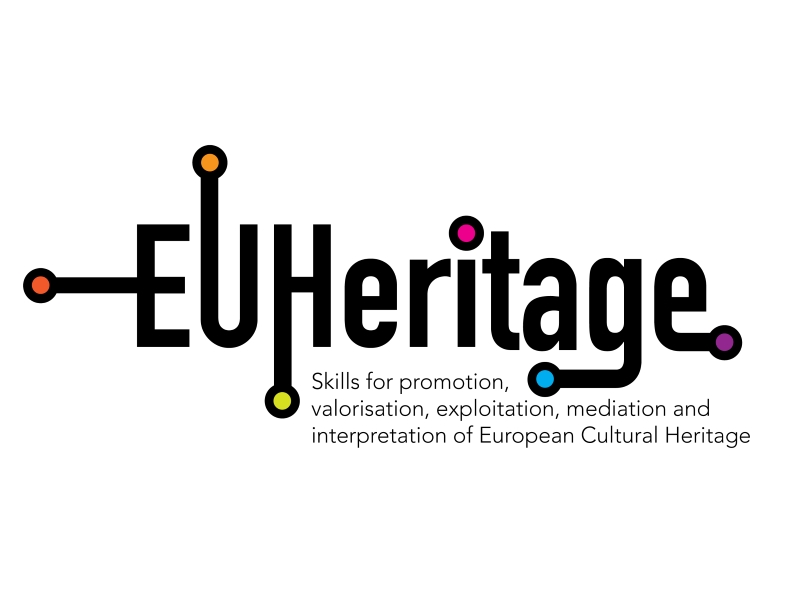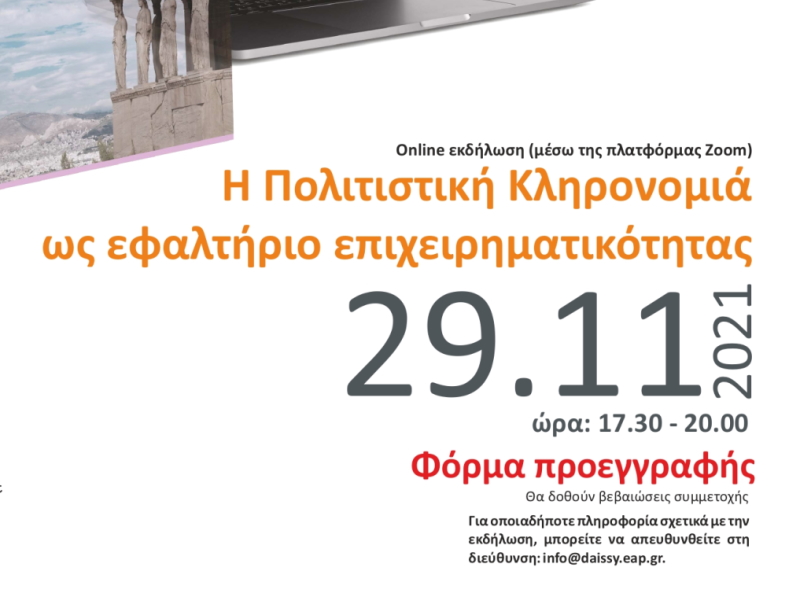During the past few months, EU Heritage partners have been working intensively in the development of the syllabus for the project’s training programme. This work is part of the project’s Work Package 4 (WP4), led by partner Fondazione Fitzcarraldo from Italy, and will result in a set of training modules including innovative teachings and learning methodologies and contents for cultural heritage professionals.
Looking at the main topics of the projects and at the results of the research phase, the Consortium agree on the possibility to develop a TP focuses on a specific goal: the creation and production of innovative experiences for tourists and local communities for a sustainable promotion of cultural heritage using digital dimension developing participation and links with creative communities.
This goal well combines the three main dimensions of cultural heritage, experience tourism and digital that are the key concepts of all the project.
Looking at this main goal, the Consortium develop a structure of the TTP based on five modules where each of them correspond to a specific learning outcome.
To develop these contents the Consortium worked on a process where each partner discussed contents in specific working groups. Each group had a Content Curator that – as scientific team leader – developed in a second phase specific contents for each Module.
The first module "Cultural heritage for local development" develops skills and competences to design, develop and manage development processes creating links and relations between the site / destination and resources, cultural heritage, visitors, tourism professionals and cultural and creative industries.
The second module “Design the visitors experience” aims to develop competences to design, create, develop and manage experience products combining soft skills on management together with knowledge on cultural heritage, tourism and ICT.
The third module “Digital strategies and instruments for valorization and communication of cultural heritage” propose a way to understand the opportunity of digital dimension in developing, managing, communicating sites, destinations and visitor experiences. Enhancing the skills that the TP will propose, the participants identify the most appropriate approaches to be used according to the goals of the site / destination and of the visitor experiences.
The fourth module “Entrepreneurial valorization of cultural heritage” develops skills to acquire an entrepreneurial approach in in all aspects of the management of cultural heritage, to make projects more effective and sustainable.
The fifth module “Approaches for sustainability and social impact” will work on competences on how to use qualitative and quantitative approaches to evaluate and monitor the experience dealing with visitors, communities and site / destination.
A final project work will give the participants the opportunity to test acquired skills on the ground implementing a specific project in a cultural and territorial context.
The Consortium is now working on defining specific Units of Modules, target groups and training modalities.
This contents will contribute to the implementation of the Syllabus that will be the document that will summarize all the scientific and structural elements of the TP.
A final consideration would be important dealing with the new scenarios that the pandemic situation activated in the cultural and tourism contexts: new paradigms of interpretation are necessary in order to rethink the products, the demand, the activities of the offer and the policies to relaunch destinations and sites.
These elements constitute a new reference context that the Consortium will take into account to develop the EUheritage training programme.
Stay tuned!

